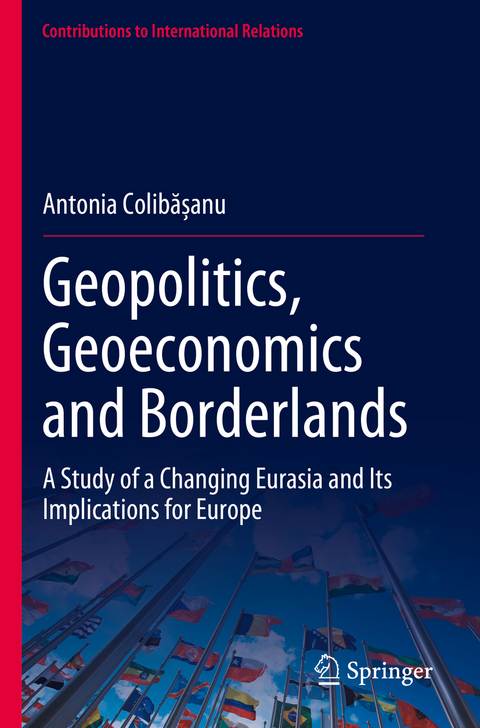
Geopolitics, Geoeconomics and Borderlands
Springer International Publishing (Verlag)
978-3-031-33942-4 (ISBN)
This book discusses the emerging threats to European stability in different borderland regions, from the Greater Middle East to the Eastern Mediterranean, the Balkans and the Black Sea. It highlights the specific geopolitical risks that could, left unchecked, have global repercussions. The book shows how recent events have exasperated underlying problems that have been slowly destabilizing each of these regions for years. It also looks at the geopolitical constraints and objectives of the countries within these regions to build a basis for understanding their current and future security challenges.
While doing so, the book discusses the European borderlands in a non-traditional way, proposing a specific framework to study them, going beyond historical analysis and employing a heuristic process and in-depth socio-economic analysis to understand regional power relations and trends. It develops the key concepts of "core borderland" and "geopolitical node" to understand the future challenges that Europe in particular and Eurasia, in general, will face, discussing specific features shaping current affairs and identifying the main drivers - countries and specific regional elements - for the future stability of the borderlands.
This book will appeal to students and scholars of international relations, as well as policy-makers, practitioners, and international organizations interested in a better understanding of current and future challenges at Europe's borderlands and the security risks the European continent faces.
Antonia Colibasanu is a senior geopolitical analyst and the Chief Operating Officer of Geopolitical Futures LLC, Austin (USA). She is also teaching geopolitics and international relations at the National University of Political Studies and Public Administration, Bucharest (Romania). She is a former partner and Vice President for International Marketing for Eurasia at Stratfor, where she worked in various positions for more than a decade. She has thus gained a unique perspective that combines the academic background with the practical matters of foreign affairs, both in politics and businesses worldwide.
Chapter 1. Introduction.- Chapter 2. A Theoretical Discussion on the Borderlands.- Chapter 3. The Core Borderland: Afghanistan.- Chapter 4. The Middle Powers and the Core Borderland.- Chapter 5. Iran: The Resurgent(?) Landlocked Power.- Chapter 6. The Connector Challenges.- Chapter 7. The Turkish Question.- Chapter 8. The Caucasus - Borderlands Meeting Point.- Chapter 9. The Landmass Pressure: Russia.- Chapter 10. The Nodes and the Re-Shifts: the Borderlands in Transition.- Chapter 11. The Geopolitical Node: The Black Sea and Beyond.- Chapter 12. Conclusions.
| Erscheinungsdatum | 28.07.2024 |
|---|---|
| Reihe/Serie | Contributions to International Relations |
| Zusatzinfo | X, 246 p. |
| Verlagsort | Cham |
| Sprache | englisch |
| Maße | 155 x 235 mm |
| Themenwelt | Sozialwissenschaften ► Politik / Verwaltung ► Europäische / Internationale Politik |
| Sozialwissenschaften ► Politik / Verwaltung ► Vergleichende Politikwissenschaften | |
| Schlagworte | Baltic Sea • Black Sea • China • Covid-19 • Eastern Mediterranean • EU Global Strategy • Geopolitics • Migration crisis • NATO • Regional stability • Russia • Security Challenges • Security nexus • SWOT model • Turkey • Ukraine crisis • USA |
| ISBN-10 | 3-031-33942-8 / 3031339428 |
| ISBN-13 | 978-3-031-33942-4 / 9783031339424 |
| Zustand | Neuware |
| Haben Sie eine Frage zum Produkt? |
aus dem Bereich


